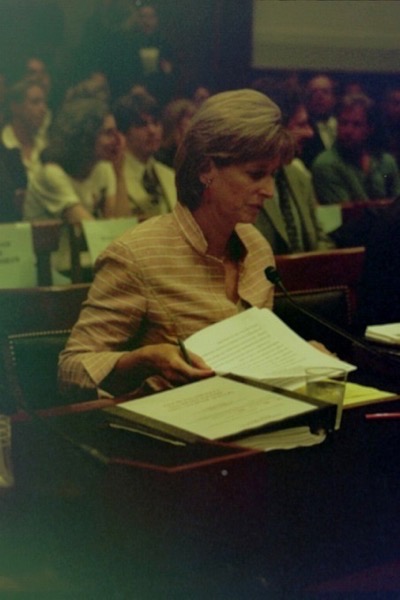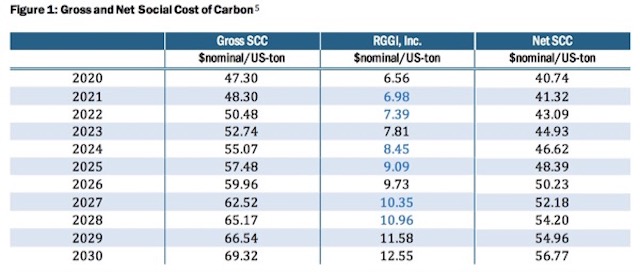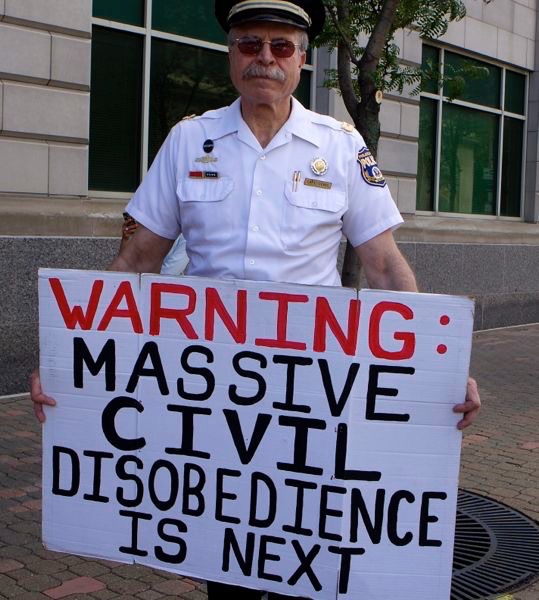The Cap Is Full Of Crap – And So Are Gov. Murphy’s Trenton Cheerleaders
Wall Street Wind Exempted From Cap
Once Again, Trenton Cheerleaders Exposed
Follow The Wall Street & PSE&G Money
Why was a costly, capital intensive, centralized, large scale off shore wind energy source with little market competition exempted from the cost cap, while the cheaper, labor intensive, decentralized, small scale, and far more competitive solar technology was not?
You won’t find it mentioned anywhere in NJ Gov. Murphy’s self congratulatory press release on signing the bill into law- or in the stenography that masquerades as journalism – but the Gov.’s highly touted renewable law included a Trojan Horse cap on costs of renewable energy.
Even the solar industry ignored the cap issue in their rush to issue sycophantic praise of Gov. Murphy:
“This new law is nothing less than a fundamental overhaul of the way our state will generate, distribute, and use energy”, stated Jim Spano, MSEIA’s Vice President for New Jersey. “It will launch New Jersey, the birthplace of solar power technology, into the forefront of the drive to combat global warming and create a sustainable energy future”.
Just listen to these lapdogs trip over each other to praise Gov. Murphy: (in Gov. Murphy’s own press release)
“The clean energy bill is a great down payment on Governor Murphy’s commitment to 100 percent clean energy by 2050. I couldn’t be more thrilled the Governor took this initiative one step further today by signing an executive order to update the energy supply plan toward the 100 percent clean energy goal.” ~~~ Ed Potosnak, executive director, NJ League of Conservation Voters
“This landmark legislation and executive order show that New Jersey is serious about rapidly adopting clean, renewable energy. From far-reaching environmental benefits, to tens of thousands of jobs that strengthen our economy, to lower emissions that fend off climate change and improve our health, the advantages of clean energy are undeniable. With these actions, Gov. Murphy is making New Jersey a national leader in the transition away from fossil fuels toward a healthier and more prosperous clean energy future.” ~~~ Tom Gilbert, campaign director, ReThink Energy NJ and New Jersey Conservation Foundation
But, at the time the bill was moving through the legislature, we warned about the disastrous impacts of the cap and harshly criticized the environmental groups who supported it, see:
The current version of the bill contains a cap that would kill the necessary expansion of renewable energy, Section 6.d.(2) provides::
Those caps … would function very much like the “cost test” in the Offshore Wind Act, which was to provide a basis and political cover for BPU to block wind. That cost test was a scheme of Sweeney and former Gov. Christie.)
They [caps] would be the death knell for renewable energy in NJ and make it impossible to meet the greenhouse gas emission reduction goals of the Global Warming Response Act, which will require major investment and larger ratepayer increases to pay for them. …
We got confirmation that the assholes from NJ LCV signed off on the poison pill provision.
These people are dangerously incompetent and corrupt too.
Our warnings went unheeded – with the exception of wind as discussed below – and the cap was signed into law by Gov. Murphy.
Throughout the debate on the legislation, some of the so called “green groups” contradicted our analysis and just flat out lied to the public about costs. Here is a perfect example of that:(NJ Spotlight)
But others argued there is a pathway to move to a cleaner energy economy – one that would not cost consumers or businesses any more than they are now paying, if the state continued to rely on conventional power sources for electricity.
Not only is it achievable, but it is affordable, according to Barb Blumenthal, research director for the New Jersey Conservation Foundation. “We see many pathways forward that don’t cost any more money and some that cost less than business as usual for New Jersey,” she said, citing a study by her group.
But now, months after the Trojan Horse is out of the barn, the cap – just as we predicted – finally is being openly discussed as a major threat to the solar industry – even forcing the industry to leave the State – and the solar industry is seeking legislative relied from the cap.
Two days ago, NJ Spotlight reported:
The challenge was to arrive at a proper balance between those conflicting goals, which are complicated by the law’s inclusion of a cost cap that eventually limits increases in incentives for solar projects. Without some relief from the cap, solar developers say investment likely will dry up in the state, even with the modest increase in incentives offered by the BPU’s draft proposal.
“I think we’re heading in the right direction,’’ said Fred DeSanti, a lobbyist who represents the New Jersey Solar Energy Coalition. ‘’These moves were very helpful, but we need statutory relief from the cap.’’
What kind of idiots are these people?
Just months after lavish, over the top praise of the Gov. and the renewable energy law, they now seek legislative relief from it?
But in addition to exposing these cheerleaders as the frauds that they are, there is an important set of policy issues and flawed premises being ignored in the discussion of the cap.
The capital intensive and Wall Street supported off shore wind industry was exempted from the cap. Why?
Here is the language from the law Gov. Murphy signed (P.L. 2018, c. 17) (emphases mine)
Notwithstanding the requirements of this subsection, the board shall ensure that the cost to customers of the Class I renewable energy requirement imposed pursuant to this subsection shall not exceed nine percent of the total paid for electricity by all customers in the State for energy year 2019, energy year 2020, and energy year 2021, respectively, and shall not exceed seven percent of the total paid for electricity by all customers in the State in any energy year thereafter. In calculating the cost to customers of the Class I renewable energy requirement imposed pursuant to this subsection, the board shall not include the costs of the offshore wind energy certificate program established pursuant to paragraph (4) of this subsection. The board shall take any steps necessary to prevent the exceedance of the cap on the cost to customers including, but not limited to, adjusting the Class I renewable energy requirement.
While I oppose any caps (there are several, not just on rate increases), I must ask: Why was the costly and capital intensive, centralized, large scale off shore wind energy technology – a renewable energy with little market competition – exempted from the cost cap, while the labor intensive, decentralized, small scale, and far more competitive solar technology was not?
Could it be that the Wall Street greedsters and corporate wind developers had a leg up with former Wall Streeter Gov. Murphy?
Could it be that wind industry and the gas industry have teamed up and are stealth financing and locking us into a centralized and fossil reliant energy infrastrucure (as I wrote recently)? (a suspicion reinforced by recent talk of PSEG forming corporate partnerships and investments with wind developer Orsted).
These are just some of the issues that need to be investigated and hard questions asked about.
But don’t expect any of that from the Trenton Cheerleaders, lapdogs and stenographers.






